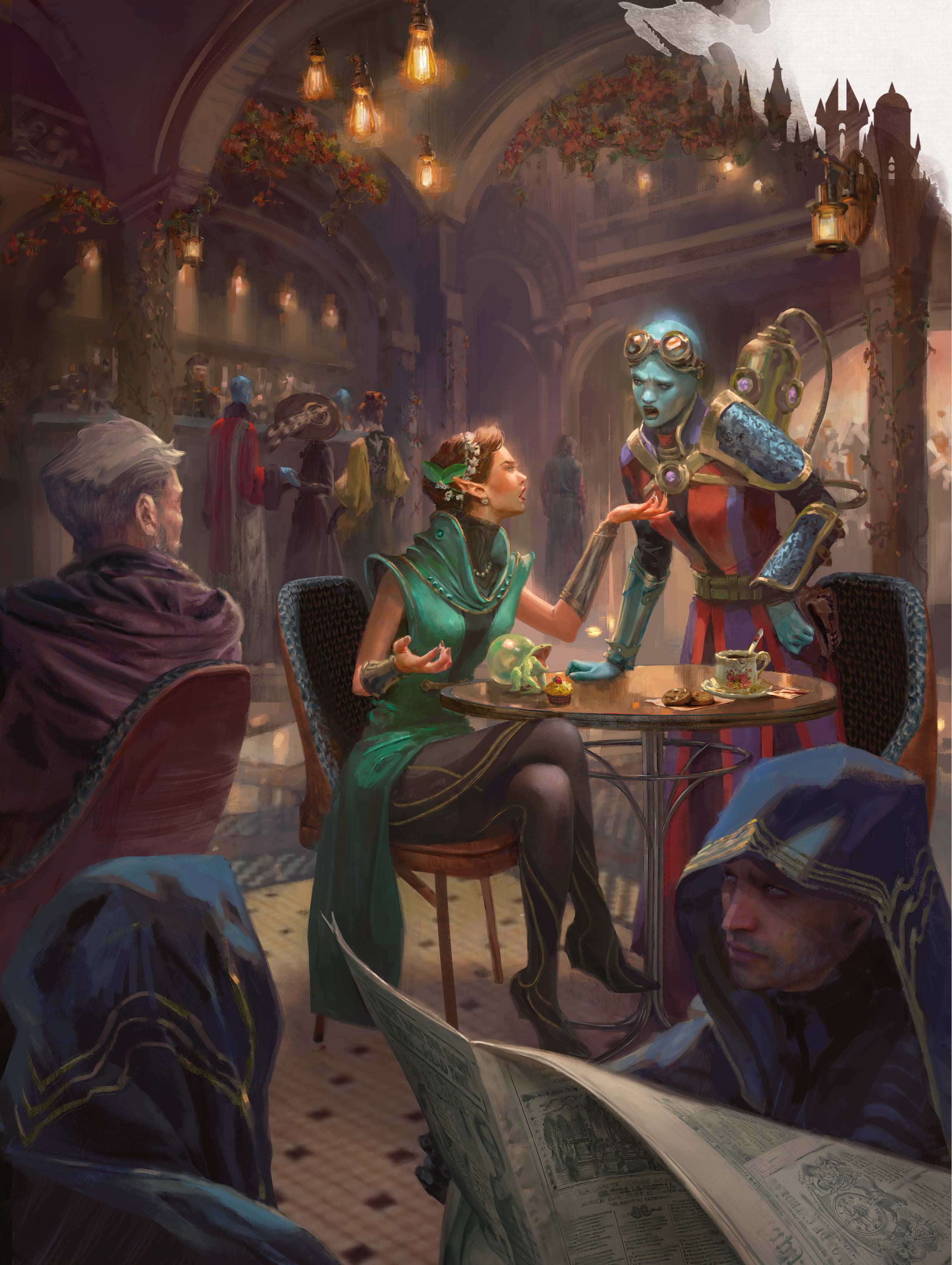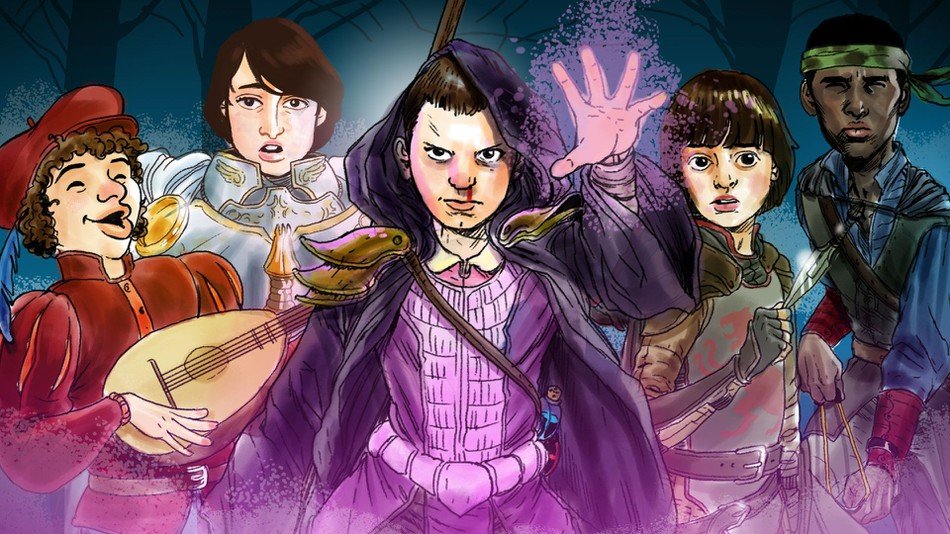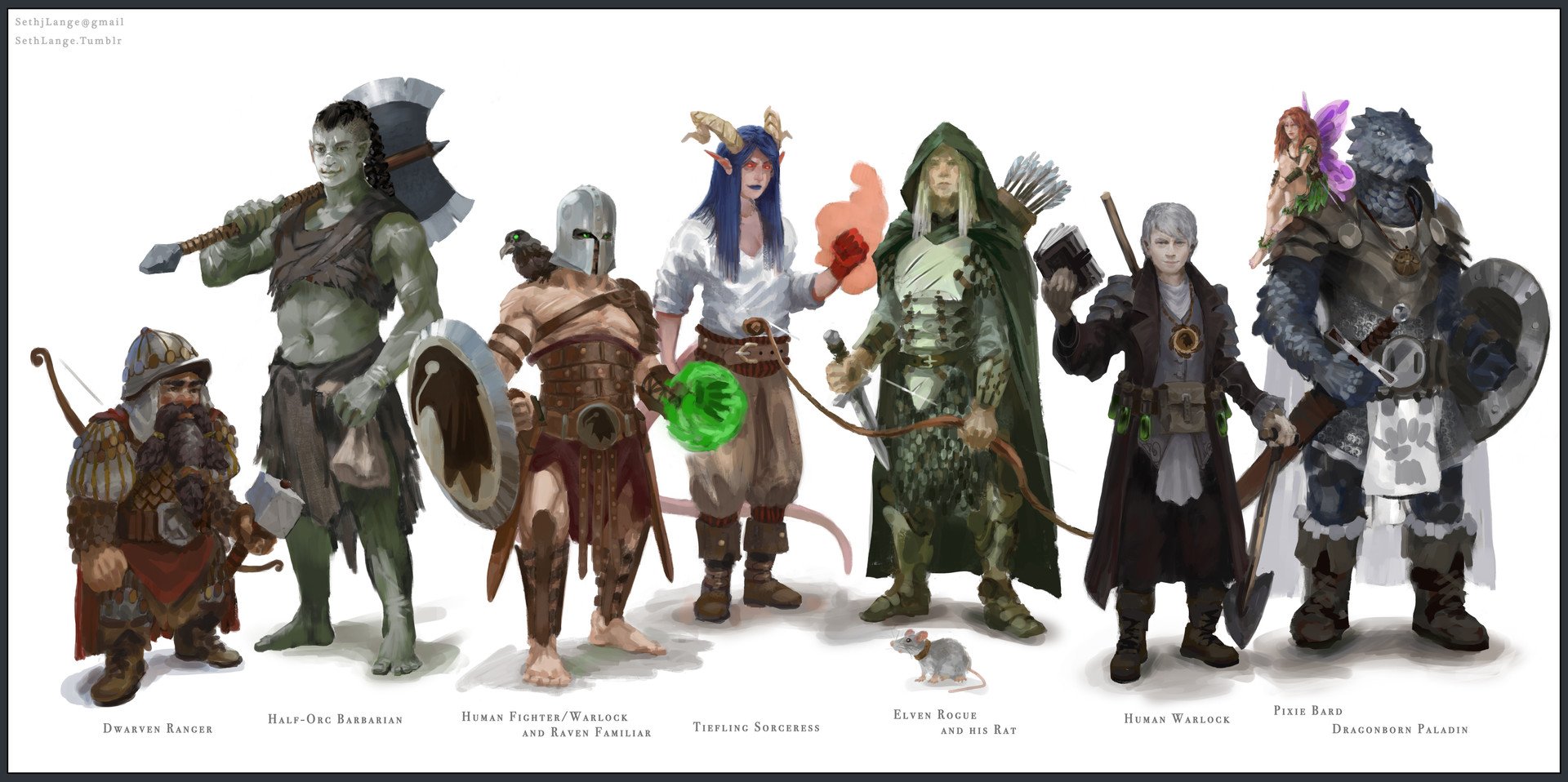
Education Adventures: Roleplaying Matures Along With Kids’ Development
Education Adventures is a column written by educator Megan Hardy. Through the Outschool program, Megan teaches a series of Life Skills courses using fifth edition Dungeons & Dragons. During the six week campaign, heroes head out to save the land from an evil ruler, facing challenges and battles and making friends along the way while learning logic and critical thinking. The campaign is designed specifically for children ages 9-14 and highlights problem solving, logic puzzles and team work while participating in a grand adventure. In the Education Adventures column, Megan shares insights and lessons she learns through teaching D&D for students and their experiences.

In D&D for kids roleplaying develops along with the players
My daughter has been playing Dungeons & Dragons since she was seven. She is now nine and is obsessed with the game. She makes her own characters and is currently planning to run her own session for friends. However, the game she plays now is not quite the same as the one she played when she was seven because as she develops, the game develops with her. When she first started to play, it was basic: lots of action and the roleplaying was very safeguarded. However, as she has developed mentally, the game has as well. Now her games are filled with more complex roleplaying. There is still a lot of action, but it’s not her favorite thing anymore. I see this in my classes as well. Different developmental stages in kids are going to require a different take on the game. This is a good thing, because there are few things as fun as watching a young player’s approach to the game blossom into something amazing.
When dealing with younger players, you first have to know their developmental age. This can be different than their actual age. It’s critical to not overwhelm them with something they can’t handle. Nothing will ruin the game for a young player faster than the frustration of not being able to understand what is going on and struggling with core concepts. Our goal as adults is to introduce them to something we love. However, we have to remember to do that in a way they can understand.
My core classes typically have kids aging from 9-12. I find this to be the prime time to introduce kids to Dungeon & Dragons. Anything younger developmentally requires a special approach. For starters, understand that some concepts of the game are hard, even for adults. Character creation can be difficult for younger kids. Rather than focusing on the math and figures for younger kids, I focus on the why we are doing this. That is a much easier concept for kids to understand. With younger kids I often get asked about the core traits and what the numbers mean. My answer is typically less about the math behind it, and more about the concepts. For example, for a 7 year old it would be, “You are a barbarian so your Strength is important to you. It’s higher because you have to hit harder.”
As they get older, gradually work in the mathematical concepts and complexities of character creation. You are building a blueprint that they will understand better than by throwing it all at them at once. I promise you they will have the lightbulb moment where it all makes sense to them. I have seen it with my own kids and countless times in class. Once they do, they won’t stop building characters and will be proud that they did it on their own. I finished a class last night with multiple students telling me about various characters they rolled up and how they wanted to play them. These were kids who, when the started my first class, didn’t understand the basics of character creation and development. However, because I approached them on a level they understood, they are are now building fun and creative characters. If I had approached them like an adult, my guess is the results would be much different.
Another area that develops and alters as your players grow developmentally is their ability to actually roleplay in a complex and meaningful way. Kids are constantly growing and developing emotionally. They have big feelings, but not always the way to express those big feelings. Because of that, roleplaying has to be approached differently with younger kids.
I play in a few games. In one, we were fighting a big bad. We had developed a well thought-out plan that had taken a lot of roleplaying time. We all did what we were supposed to do, only to have it completely fail and end up fighting a doppelganger lackey instead. Now, were we frustrated? Of course. But we were not mad, because we understood that it made for great story and roleplaying. However, if I had pulled the same thing with a group of 7-9 year olds, I can promise you there would be at least one child in tears. When younger kids get frustrated, it can lead to bigger emotions. Does this mean we don’t throw challenges at them, roleplay wise? Of course not. It just means we understand their limits and shape the challenges accordingly. Add more touches of humor and give them more outs.
Even when you have it planned right you might not have the reaction you expect. In one of my classes, a student was polymorphed into a duck. Now, I used the funniest picture I could find. Made it fun and explained how temporary the spell was. It still resulted in tears. How did I handle this? I made sure the student was okay and simply moved on story-wise. Yes, they were still polymorphed. But there was no more mention of it until the spell ended. I let the child feel their emotions, but didn’t let it disrupt the game. I did the same thing for a group of older students 11-13. They were laughing non-stop. No hurt emotions. The difference in development matters so much.
Also, roleplaying discussion can be harder for younger kids, generally because they have a harder time separating their characters from themselves. When another player disagrees with their roleplaying, it become personal. In another column, I mentioned how D&D is the ultimate form of dress up. It really is, but remember how real pretend play is for kids. As such, when roleplaying with younger children, respecting each other’s characters is the key to a successful group roleplay. This requires a firm and understanding hand by the Dungeon Master.
As kids get older, they start to do a better job of separating themselves from their characters. This gives the DM a chance to build more complicated roleplaying opportunities into their games. I have noticed that by the time kids are in their young teens, they want more and more roleplaying in their games. This is when you can really get some into some deep and complex storytelling. I have a game designed for teens and one of the universally favorite encounters in the campaign is a run-in with a surprisingly perky necromancer. If this was an encounter in my younger kids class, she would be dead. They would attack and not think twice about it. In the teen class, they always engage in discussion and it becomes a serious interaction. Several groups have made an ally of her. This is a sign of how different the approach of the developmental age groups are.
One of the best things about being a parent is watching your child grow and expand as a person. As a D&D player, one of the best things is to watch yourself and your group develop as players. When you have kids at your table, you get both at once, and they make each other better. Watching a child develop emotionally and mentally along with D&D is an amazing experience. I have seen this is as a parent and a teacher. After I finish this column, I’m going to help my daughter design some NPCs for her game. I can’t wait to see what she develops in the years to come. So start with your children. Make memories and keep a record. You will be amazed by their development and have a campaign buddy for life.
Dungeons & Dragons classes
- Visit Megan’s Outschool page to find out about all the Dungeons & Dragons courses she teaches, as well as other classes like Medieval History: Feudalism in an Hour, Beyond Salem: Witchcraft in Colonial America, Cthulhu and Other Lore of Lovecraft, and more.
[amazon_link asins=’0786965592,0786965622,B01M1CRRY3′ template=’ProductCarousel’ store=’nerdarchy-20′ marketplace=’US’ link_id=’d1c0a804-bdd0-46c0-817d-ed8b394a4d23′]








No Comments